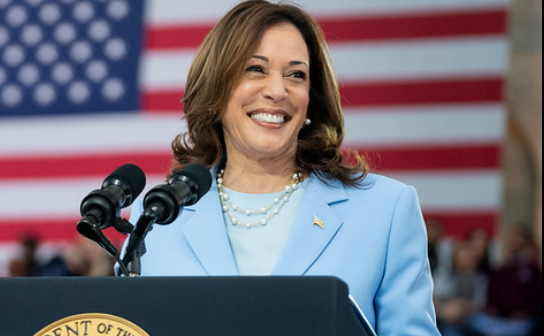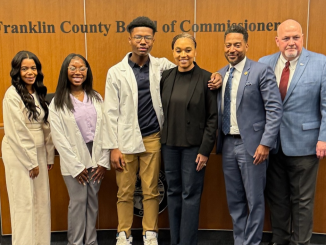
This week, Harris proposed giving a million loans, forgivable up to $20,000, to “black entrepreneurs and others who have historically faced barriers,” a policy that legal scholars said would be unconstitutional.
{snip}
Some legal experts said the proposal would face challenges in court, as other similar Biden-era proposals have.
“If you’re giving credit to black entrepreneurs based on their race, that’s unconstitutional, plain and simple, and against the Equal Credit Opportunity Act,” Alden Abbott, senior research fellow at the libertarian Mercatus Center, told the Washington Examiner.
The Equal Credit Opportunity Act prohibits creditors from discriminating on the basis of race, religion, national origin, sex, age, or marital status or because someone receives income from public assistance.
Abbott said there could be a legal argument for providing the loans in question if the government can prove it wasn’t explicitly providing them to “black” entrepreneurs but rather was providing them to “disadvantaged entrepreneurs.” Even so, he said, anything that favors race is “problematic.”
The campaign proposal includes some wiggle room, perhaps in an attempt to sidestep questions about the plan’s constitutionality. It specifically said the loans would be provided not just to black entrepreneurs but also to “others who have historically faced barriers.”
{snip}
“One of them is when they are recompensing for injury done to those same people, which it doesn’t sound like it’s the case here,” he told the Washington Examiner.
Notably, this year, a federal judge in Texas sided with plaintiffs in blocking a disaster relief program from giving a preference to minority and female farmers. The plaintiffs had argued that the Agriculture Department program was discriminatory toward farmers who are white and male.
A Florida federal court also issued an injunction in 2021 that stopped part of President Joe Biden’s relief program, which aimed to forgive agricultural debt for minority farmers. The relief was part of the American Rescue Plan Act, $4 billion of which was targeted toward disadvantaged farmers, mainly in the form of debt relief, according to the Washington Post.
The Southeastern Legal Foundation represented the plaintiffs in some of the cases involving black farmers. Kim Hermann, executive director of the group, said from what she has heard about the Harris plan for black entrepreneurs in the news media, the proposal appears to be “presumptively unconstitutional.”
{snip}
The forgivable loans pitch comes as part of several new initiatives designed to appeal to black men, a demographic that polls have indicated former President Donald Trump has made inroads with since the last election. The vice president unveiled her “opportunity agenda for black men” ahead of a campaign stop in Pennsylvania on Monday.
Among the campaign’s other proposals were increased training programs for black men to enter into high-end industries, increased studies of sickle cell anemia and other diseases that disproportionately affect black men, and support for a program that would help black teachers.
The campaign also noted that over 20% of black men in the United States own or have owned cryptocurrency assets. Harris will ensure that “owners of and investors in digital assets benefit from a regulatory framework so that Black men and others who participate in this market are protected,” according to a document detailing the new proposals.
“This agenda is a further realization of Vice President Harris’ Opportunity Economy,” said former Rep. Cedric Richmond (D-LA), a Harris campaign co-chairman. “An economy where people don’t just get by, but get ahead. Where Black men are equipped with the tools to thrive: to buy a home, provide for our families, start a business, and build wealth.”
{snip}
“Yes, we would absolutely be looking at whether or not this could be and should be challenged,” she said. “I mean, at the end of the day, the federal government should not be making decisions based on the color of people’s skin. The Constitution says it can’t do it.”


